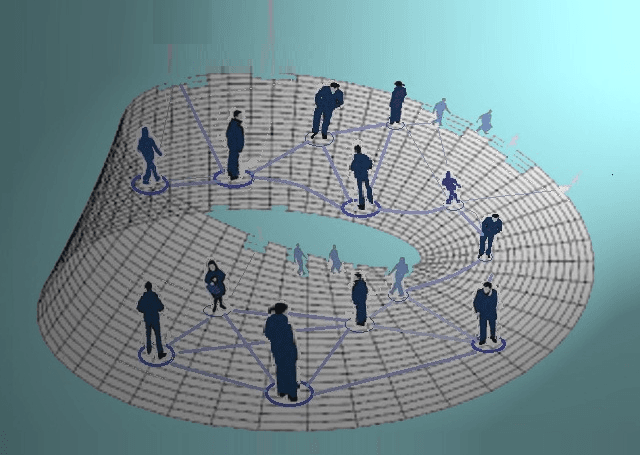INTRODUCTION The 24th issue of the journal emerges in a period where political and religious conflicts are manifested worldwide with the wars in the Ukraine and Gaza raging on. People in the warzones – when they are not killed – are displaced from their homes. Those safely watching at home through technology are traumatised by the brutality, are divided, are exposed to and exhibit violence and populism, and are fragmented. Presently there is a worldwide rise of psychopathology, and the need for effective interventions within the already underfunded national mental health systems is imperative. However, the need to seek a quick solution often leads to an excessive use of diagnoses, and an abuse of medication and hospitalisation. The population most vulnerable in this entire situation are children and adolescents that exhibit deficiencies in empathy and the capacity for close and intimate relationships. Now, more than ever, the family must be recognised and reinforced as a cornerstone of society, and thus, as an important vehicle for therapy. This is the conclusion of the “Manifesto” that was drafted in the Assisi Conference.
Before, however, we can thoroughly preview the papers in this issue, we are unfortunately obliged to begin with a mournful event. In March, a noted member of the systemic community passed away; the psychiatrist and psychotherapist Nikos Paritisis. Nikos Marketos makes note of his contribution to the establishment of the Systemic Family Approach in Greece. Among many other things, he was a prolific author and a founding member of HE.S.T.A.F.T.A and EFTA, as well as a member of the board of many international organizations.
The first paper of this issue is “The Assisi Manifesto”, by Maurizio Andolfi and the International Faculty, as translated by Valeria Pomini. The “Manifesto” includes the synthesis of ideas in relation to what is important in the collaboration with families, as the culmination of the meeting of more than one thousand approved family therapists from over 50 countries in Assisi, Italy in June 2023.
Then comes the paper entitled “Marriage and Love” by Katerina Theodoraki and Nikos Vaidakis, which comprises of two parts. In the first one (the macrolevel) the creation, course, evolution and transformation of the family and of the institution of marriage on the social level are described. In the second one (the microlevel) the relationship of the couple through the concepts of love, being in love, friendship, passion and the bond of the couple, as well as the way in which these are shaped by social changes and evolve through time are discussed.
In the next paper, “About the Desire in the couple”, by Patrizia Frongia, the history of desire in coupes is presented, and a relational interpretation of the phenomenon is proposed, based on the reflections of other authors and the results of a series of questions that were posed to couples during their therapy. Research interest regarding desire and its expression derives mainly from clinical experience with couples. The questions mostly concern the decoding of desire in its history and its relation to various emotional aspects.
In the paper “Facing obstacles, looking for resources: A historic retrospective” by Varvara Salavou, the meanings of crisis are discussed, along with the processes that may contribute to coping with it, through the review of the 15-year course of a complex therapeutic and training facility such as the Specialist Service for Family Therapy within the Child-Psychiatry Department of the Medical School of Athens at the Children’s General Hospital “St. Sophia”.
Afterwards, comes the lecture entitled “Child Psychiatric “Assessment”/Diagnosis: A specialist systemic psychotherapist’s dilemmas” that was given in the 13th Panhellenic Conference of Child and Adolescent Psychiatry by Katerina Theodoraki. The author places herself into two roles, that of child psychiatrist and that of systemic psychotherapist. She poses questions concerning the increasing number of requests by parents for a child psychiatric “assessment”, as well as the dangers of hasty and premature diagnoses that lead to a fragmented treatment and the “labelling” of the child. The child psychiatrist/systemic psychotherapist knows that the child expresses the dysfunction of the entire family, and is obliged to view the family collaboratively and holistically, opposing any kind of labelling that would narrow his and the families perspective.
In the same conference, Dimitris Magriplis and Panagiota Georgoni, in a lecture entitled “Therapy, treatment centers, institutions, in the context of successive crises in Greek society”, describe the effects of the crises of Greek society on the family and the public mental health services for children and adolescents whose role is to offer therapeutic work. They describe their experience at the child psychiatry department of Chalandri-Agia Paraskevi Community Mental Health Center, and highlight the need for the utilisation of collaborations, networking of institutions and the reinforcement of the “social state”.
What follows next is the paper “Our existence through the eyes of astrophysics” by 14-year-old Antonis Petrou who wonders: “Can astrophysics affect the way we think? Can it change the way we see man and our existence?”… In order to answer this question he takes us on a journey back in time. More specifically he takes us right back to when time is born, to the event that we call the Big Bang!
We move forward with the book review of Michael Petrou’s “Fragments of the sweet country… Mourning: The Individual – Society – Politics” by Katia Charalabaki, where the mourning process and Cyprus’ trauma are examined through concepts such as psychic reality, intersubjectivity, and symbolisation. The issue of the missing Cypriots as a result of the 1974 Turkish invasion is also discussed, with extensive descriptions of the invasion. Finally, deeper thoughts/analyses are presented concerning the course, the present and the future of the situation on the island.
In the next book review, also by Katia Charalabaki of Thomas H. Ogden’s “This art of Psychoanalysis - Dreaming undreamt dreams and interrupted cries” – scientifically edited by Gregory Vaslamatzis (for the Greek edition), we have a new reading of “object relations” theory and the introduction of the concept of “ontological psychoanalysis” as opposed to “epistemological psychoanalysis”. There is also a description of dreaming and of “one’s inability to dream”.
Finally, in the book review of Vlasis Tomaras’ “Families in crisis - Eight Cases of Family Psychotherapy” by Nikos Marketos, there is the discussion of systemic psychotherapeutic intervention in cases with an acute psychiatric incident (and not only), through the presentation of eight extreme cases. We are, at the same time, called to contemplate on classic clinical practices, such as inpatient treatment.
Enjoy reading!
On behalf of the Editorial Board,
Eudocia Tagouli
Child Psychiatrist, Systemic Psychotherapist


